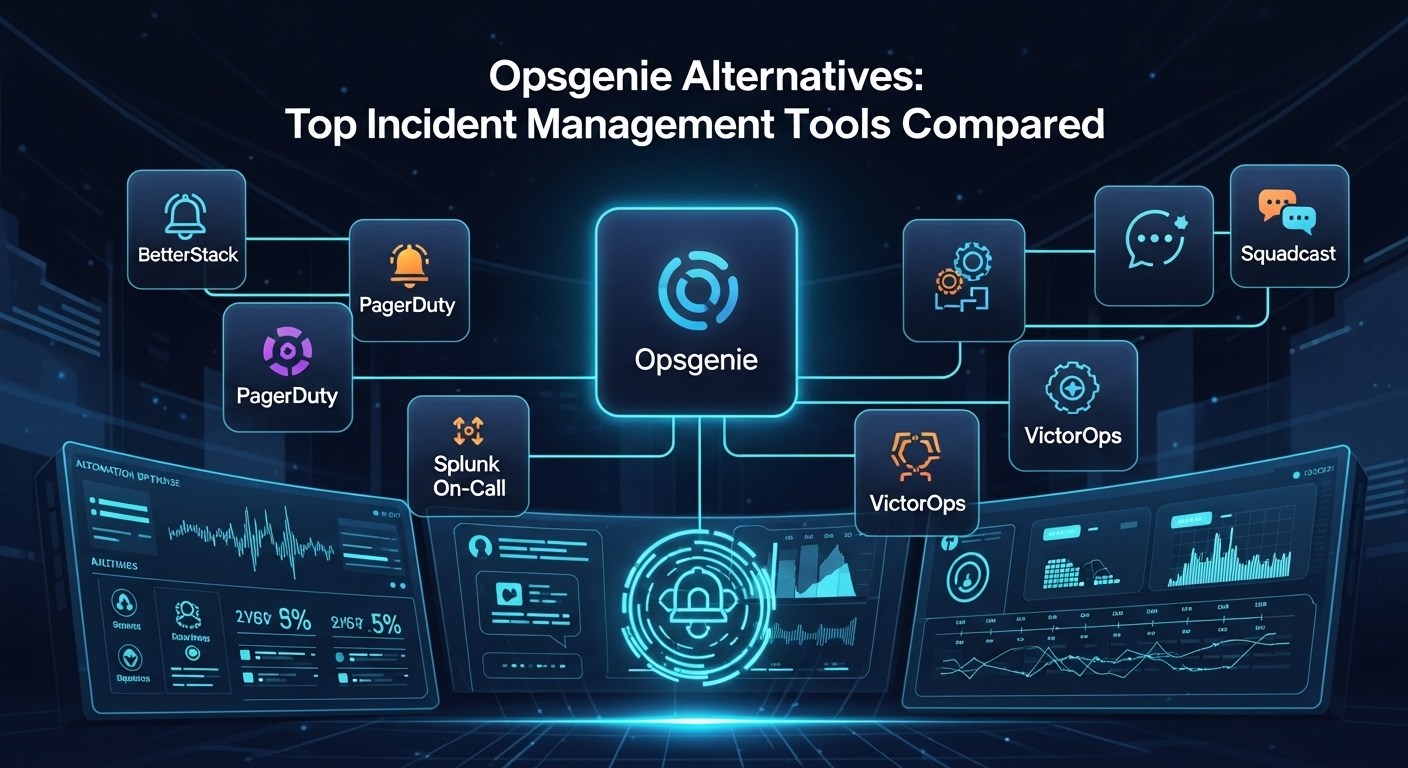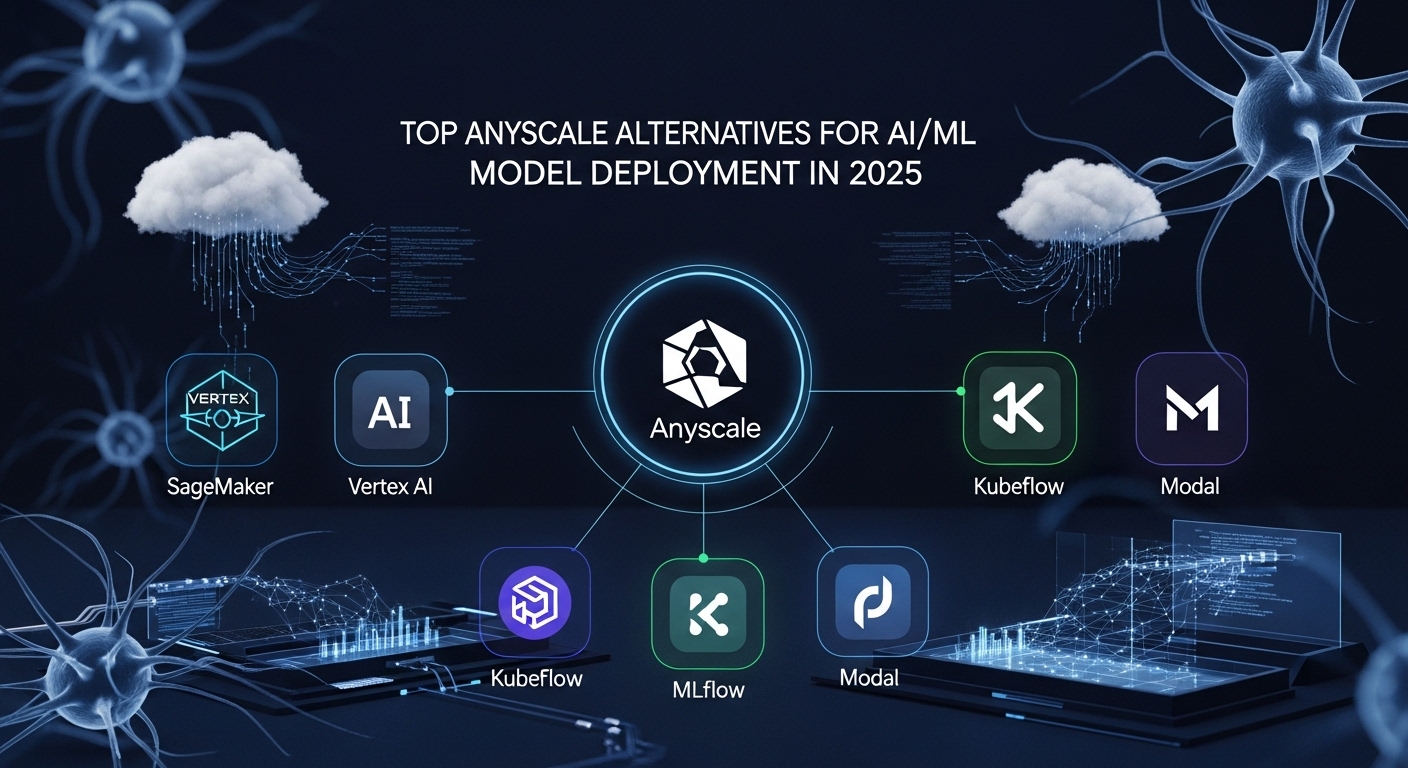Top Opsgenie Alternatives for Incident Management and Alerting in 2025

Strong 8k brings an ultra-HD IPTV experience to your living room and your pocket.
In today’s always-on digital world, timely incident response and alerting are mission-critical. Teams rely on robust alerting and on-call management tools to ensure uptime, avoid customer churn, and maintain service reliability. Opsgenie, a popular product by Atlassian, has long been a go-to solution for on-call scheduling and incident alerts—but it’s not the only option.
Whether you're seeking more intuitive UI, better pricing, modern integrations, or improved observability, this blog explores the best Opsgenie alternatives in 2025—starting with the rising star: Better Stack.
Why Look for Opsgenie Alternatives?
While Opsgenie is feature-rich and integrates well with tools like Jira, it comes with some limitations:
Complex pricing for small teams
Clunky user interface
Limited built-in observability features
Requires third-party tools for logging and status pages
Some users report delayed notifications or alert noise
If you’re scaling a fast-moving DevOps or SRE team, or simply want a lightweight, efficient, and affordable solution, exploring Opsgenie alternatives could lead to a better fit.
1. 🚀 Better Stack (Better Uptime) – Best Opsgenie Alternative Overall
🌟 Overview:
Better Stack (formerly Better Uptime) offers a beautifully designed, modern incident management platform that combines uptime monitoring, on-call scheduling, alerting, status pages, and incident logging—all in one tool.
🔧 Key Features:
Built-in uptime monitoring and multi-location checks
On-call scheduling with escalations
Incident timeline and post-mortems
Integrations with Slack, Teams, Zapier, Datadog, Grafana, Prometheus
Automated screenshots and incident logs
Customizable public status pages
✅ Pros:
All-in-one platform (monitoring + alerting + logging)
Clean, intuitive interface
Free tier available with generous limits
Affordable pricing compared to Opsgenie
Instant alerts via phone, SMS, email, or app
❌ Cons:
More focused on small to mid-size teams
Advanced enterprise features still evolving
💡 Best For:
DevOps teams, startups, and growing SaaS businesses looking for a modern, efficient Opsgenie replacement.
👉 Why it's better than Opsgenie: Combines alerting, uptime monitoring, and incident logs in one platform—no need for multiple tools.
2. ⚙️ PagerDuty
🌟 Overview:
PagerDuty is one of the most established players in incident response and digital operations.
🔧 Key Features:
Intelligent alert grouping
On-call scheduling with advanced rotations
Incident response automation
Runbooks, status pages, and service health
Machine learning-based alert deduplication
✅ Pros:
Powerful and reliable
Enterprise-grade security and SLAs
Highly customizable
❌ Cons:
Expensive for small teams
Steeper learning curve than newer tools
💡 Best For:
Large-scale enterprise teams with complex workflows and critical uptime requirements.
👉 Why it’s an alternative: Offers more mature features and integrations than Opsgenie, but at a higher price point.
3. 🧩 Splunk On-Call (formerly VictorOps)
🌟 Overview:
Splunk On-Call is an incident response tool tailored for DevOps teams, previously known as VictorOps.
🔧 Key Features:
On-call management with live call routing
Post-incident reviews and collaboration tools
Timeline visualization of incidents
Integration with Splunk observability tools
✅ Pros:
Real-time collaboration tools
Timeline-based incident analysis
Easy integrations with monitoring and logging
❌ Cons:
User interface feels outdated
Best suited when using other Splunk products
💡 Best For:
Teams already using Splunk for observability and looking for tighter integration.
👉 Why it’s an alternative: Combines alerting with incident visibility in a unified timeline, like Opsgenie but more collaborative.
4. 🌐 xMatters
🌟 Overview:
xMatters is a digital service availability platform that focuses on automating workflows and alerting chains.
🔧 Key Features:
Incident automation and routing
Low-code workflow builder
Context-aware notifications
Integration with over 200 tools
✅ Pros:
Automation-first approach
Strong workflow and escalation logic
Free plan with robust core features
❌ Cons:
Not as modern UI-wise
More focused on automation than real-time monitoring
💡 Best For:
Large IT operations or enterprises needing complex workflow automation.
👉 Why it’s an alternative: Offers more customizable incident flows than Opsgenie’s default alerting rules.
5. 📱 Squadcast
🌟 Overview:
Squadcast is an incident management and SRE tool that aims to be modern, affordable, and easy to use.
🔧 Key Features:
On-call scheduling and alerting
SRE-inspired workflows (SLIs, SLOs)
Status pages and incident timelines
Real-time collaboration during incidents
✅ Pros:
SRE principles baked in
Clean UI and easy onboarding
Affordable for small teams
❌ Cons:
Still growing ecosystem of integrations
Limited AI-based features
💡 Best For:
Tech-forward teams looking for an SRE-friendly alerting solution.
👉 Why it’s an alternative: Cheaper, simpler, and more modern than Opsgenie—especially for engineering-centric teams.
6. 📞 AlertOps
🌟 Overview:
AlertOps is a flexible incident response and alert management tool geared towards large-scale IT and NOC teams.
🔧 Key Features:
Custom alert routing
Multi-channel notifications (voice, SMS, email, push)
Audit trails and compliance tracking
Role-based access controls
✅ Pros:
Strong compliance support (HIPAA, SOC 2)
Custom workflows and roles
Phone-call based alert escalations
❌ Cons:
Outdated UI
Complex to configure for non-technical users
💡 Best For:
Healthcare, fintech, and other compliance-heavy industries.
👉 Why it’s an alternative: More flexible alert customization and escalation than Opsgenie.
Final Thoughts
While Opsgenie remains a powerful tool for many, it’s not always the best fit for every team—especially if you're looking for modern design, better cost efficiency, integrated monitoring, or smoother onboarding.
If you're starting fresh in 2025 or want to simplify your toolstack, platforms like Better Stack offer a compelling alternative with features like built-in uptime monitoring, alerting, logging, and beautiful status pages—all in one place.
Choosing the right Opsgenie alternative depends on your team size, existing infrastructure, and need for automation or observability.
Note: IndiBlogHub features both user-submitted and editorial content. We do not verify third-party contributions. Read our Disclaimer and Privacy Policyfor details.







